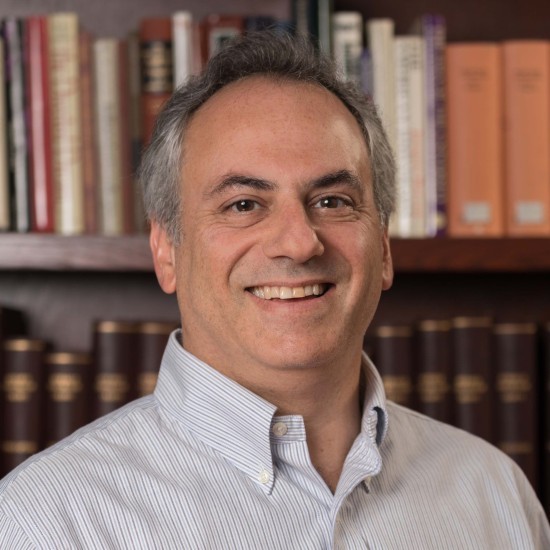
Senior Program Director
Andrew Feig, Ph.D.
Andrew Feig received his B.S. in chemistry from Yale University and his Ph.D. in chemistry from the Massachusetts Institute of Technology. He first started working in laboratories in high school at UCLA where he developed monoclonal antibodies specific to N-myc and later with Prof. David Sigman studying the mutagenicity and DNA sequence specificity of copper complexes of phenanthroline derivatives. His doctoral work with Prof. Stephen J. Lippard involved the synthesis and dioxygen reactivity of small molecule model complexes of the iron center from methane monooxygenase. As a post-doctoral fellow in the laboratory of Prof. Olke Uhlenbeck at University of Colorado, Boulder, Feig worked on the mechanism and metal binding properties of the hammerhead ribozyme.
Feig joined the faculty of Indiana University, Bloomington in 1999 and moved from IU to Wayne State University in 2006 where over the years he was promoted to full professor and served four years as Associate Dean of the Graduate School. The Feig Laboratory focused on non-coding RNAs involved in post-transcriptional gene regulation in bacteria. Using a combination of biochemical, biophysical and genetic approaches, they studied the manner in which the RNA-binding protein Hfq facilitated the pairing between non-coding RNAs and their cognate messenger RNAs and prevented trapping in near-cognate complexes. The Feig Lab branched out into the analysis of the pathogenic bacteria Clostridium difficile, the most common cause of antibiotic-associated diarrhea. In addition to studying the gene regulation of toxins A and B, the lab developed inhibitors of the toxins’ glucosyltranferase activity, and studied potential biotechnology applications for cellular delivery of intact proteins that utilize its elegant protein translocation mechanism.
Throughout his career Feig has held fast to the teacher-scholar model emphasizing student learning in both the classroom and the laboratory. He taught at both the graduate and undergraduate levels and incorporated authentic research questions into his laboratory courses. He helped design and implement the NIH-funded ReBUILDetroit program aimed at diversifying the biomedical workforce by providing a first-year curriculum that removed barriers and provided support for underrepresented students as they transitioned into mentored research experiences. He led the NSF-funded institutional transformation project at Wayne State to help faculty adopt evidence-based instructional practices. Feig co-founded the Cottrell Scholars Collaborative New Faculty Workshop in collaboration with Prof. Rory Waterman and the American Chemical Society to work at the national level to promote student-centered teaching and inclusive excellence in the classroom by helping to fill training gaps between what chemists are taught in graduate school and the skills needed to excel in their faculty positions.
Over the years, Feig received numerous awards including: Westinghouse Science Talent Search Scholarship (1986), NFS Post-doctoral Fellowship (1995), Cottrell Scholar Award (2002), WSU President’s Award for Excellence in Teaching (2014), Michigan Professor of the Year (2015) and he was an inaugural member of the WSU Academy of Teachers (2018). He received the RNA Society’s Lifetime Service Award (2017) for his work as the Society’s CFO and is a Fellow of the American Chemical Society (2018). He currently serves as an editor for The Biophysicist, a biophysics education journal launched in 2019 by the Biophysical Society.
